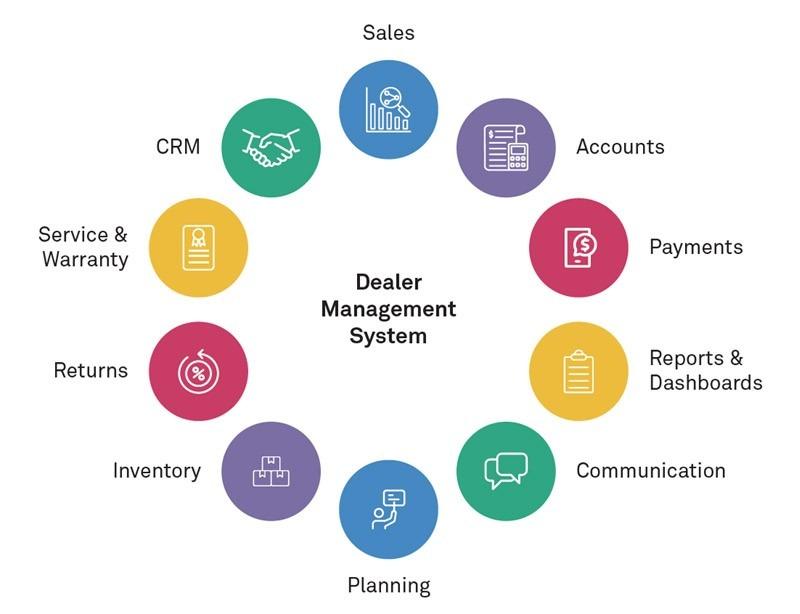In today’s competitive automotive and retail industry, maintaining efficient operations is crucial for sustained growth. A Dealer Management System (DMS) has emerged as a transformative tool for dealerships, enabling streamlined management of business activities. From inventory tracking to sales management, a DMS integrates all operational aspects into a single platform, ensuring better decision-making and improved productivity. By automating routine tasks, dealerships can focus more on customer engagement and revenue growth.
A Dealer Management System offers comprehensive functionality tailored to the needs of automotive and equipment dealerships. It centralizes data related to inventory, sales, service, and finance, providing real-time insights into business performance. This centralization allows dealerships to manage multiple departments efficiently, reducing errors caused by manual processes. For example, real-time stock updates ensure that sales teams have accurate information on vehicle availability, improving customer satisfaction and minimizing stock discrepancies.
One of the primary advantages of a DMS is its ability to enhance sales management. The system tracks customer interactions, purchase history, and preferences, allowing dealerships to personalize their services. Sales teams can generate accurate quotations, manage leads, and follow up with prospects efficiently. Additionally, the integration of financial management within a DMS ensures seamless handling of invoicing, payment tracking, and reporting. This reduces administrative burdens and enables dealerships to maintain precise financial records effortlessly.
Inventory management is another area where a Dealer Management System provides significant benefits. The system automates stock monitoring, alerts managers to low inventory levels, and tracks vehicle movements across multiple locations. This level of control helps prevent overstocking or stockouts, optimizing the supply chain and reducing operational costs. Furthermore, DMS solutions often include service management modules, enabling dealerships to schedule maintenance, manage work orders, and track service history. This not only improves workshop efficiency but also enhances the overall customer experience.
Modern Dealer Management Systems are increasingly adopting cloud-based technology, providing dealerships with flexible access to data from anywhere. Cloud-based DMS platforms support multi-location operations, offer robust data security, and reduce IT infrastructure costs. Advanced features like analytics, reporting, and business intelligence allow dealerships to identify trends, forecast demand, and make informed strategic decisions. As a result, dealerships can stay competitive in a rapidly evolving market while maintaining operational efficiency.
Source - https://www.marketresearchfuture.com/reports/dealer-management-system-market-11648
A Dealer Management System is an indispensable tool for dealerships aiming to optimize their business processes. By integrating sales, inventory, service, and finance management into a single platform, a DMS enhances productivity, reduces errors, and improves customer satisfaction. With cloud-based capabilities and advanced analytics, dealerships can achieve greater operational efficiency and make data-driven decisions. Investing in a robust Dealer Management System is no longer optional but essential for businesses seeking long-term growth and competitiveness in the automotive and retail sectors.

